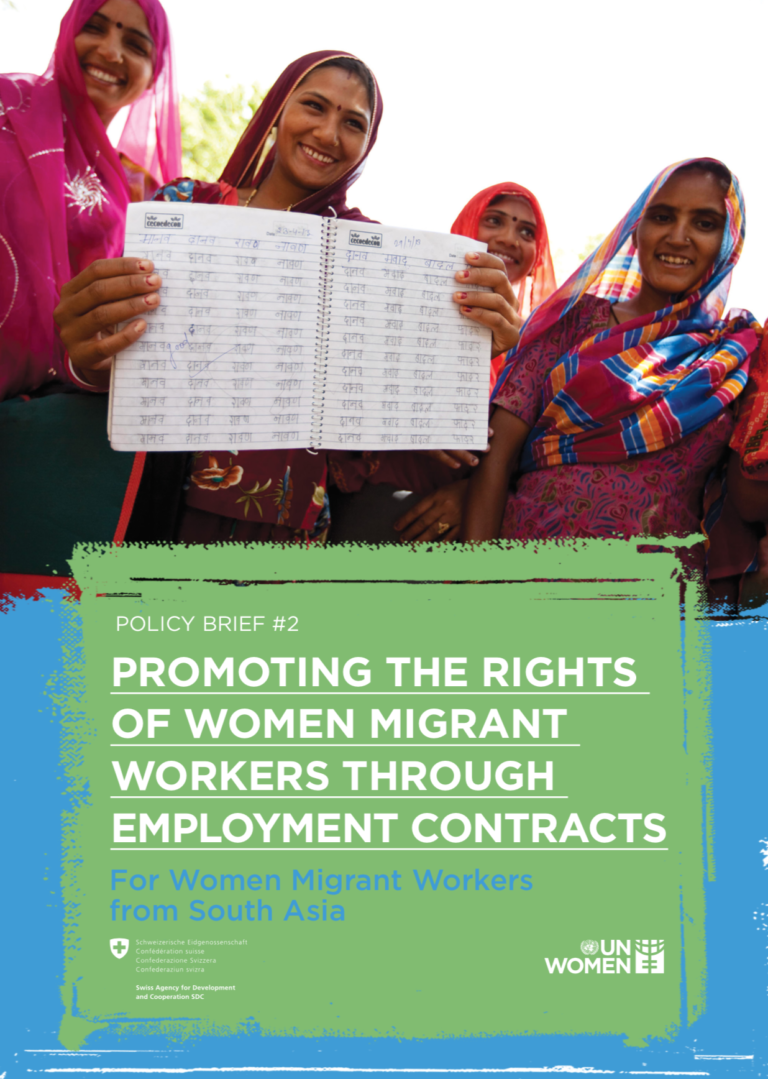“Promoting the Rights of Women Migrant Workers through Employment Contracts” identifies and compares existing contract provisions in the South Asia – Middle East corridor and summarizes strengths and gaps in protection in line with common right violations reported by women migrant workers themselves. It makes recommendations on addressing these gaps by creating enforceable rights-based, gender-responsive employment contracts.
This article is the second part of a three-part Policy Brief series that identifies actions to develop and implement effective, rights-based and gender responsive protections for women workers migrating from South Asia to the Middle East. The policy briefs address three key stages during which protections for women migrant workers are developed, implemented, and monitored.
This policy brief series forms one part of the “Empowering Women Migrant Workers from South Asia: Toolkit for Gender-responsive Employment and Recruitment” which supports gender-responsive policies and practices to protect and promote the rights of women migrant workers from South Asia.

